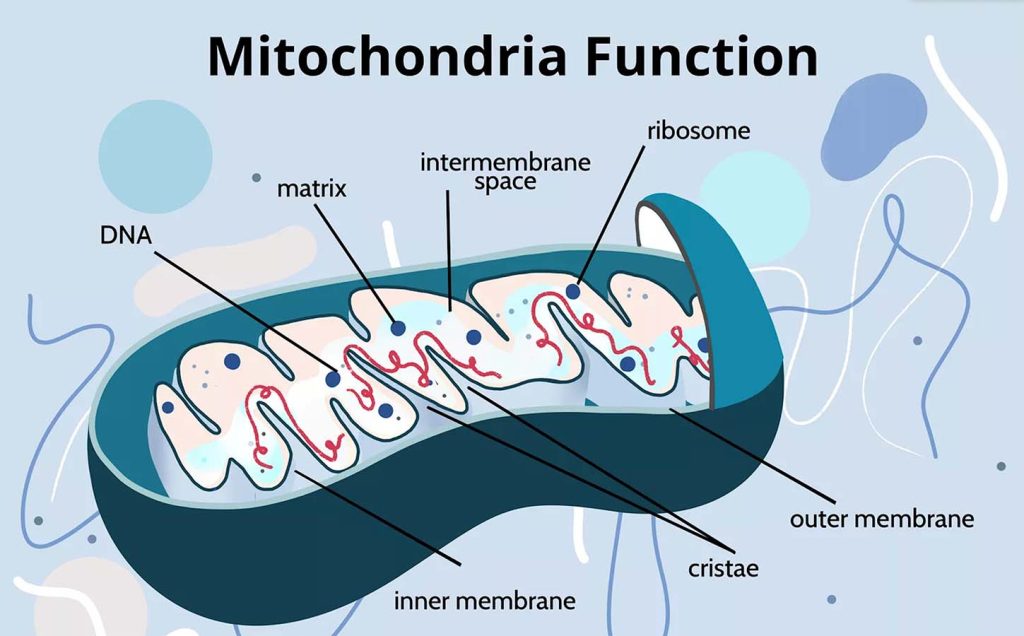In a world that never sleeps, fatigue has become a prevalent issue affecting millions worldwide. From the demands of work and family to the constant barrage of stimuli from technology, it’s no wonder that many find themselves struggling to keep up with the pace of modern life. While reaching for a quick fix like caffeine or energy drinks might provide a temporary boost, addressing fatigue requires a deeper understanding of the body’s intricate systems. This is where functional medicine and nutrition step in, offering a holistic approach to restoring vitality and reclaiming energy levels.
According to recent YouGov survey, one in eight adults in the UK reported feeling “tired all the time” and one in four adults felt “tired most of the time”.
– YouGov
Understanding Fatigue
Fatigue is more than just feeling tired; it’s a complex interplay of physical, mental, and emotional factors. Chronic stress, inadequate sleep, poor diet, hormonal imbalances, and underlying health conditions can all contribute to feelings of exhaustion and lethargy. Instead of masking symptoms with stimulants, functional medicine delves into the root causes of fatigue, seeking to rebalance the body and promote overall wellness.
How Nutrition Affects Your Energy Levels
Nutrition forms the foundation of our health, influencing everything from energy production to mood regulation. A diet rich in whole, nutrient-dense foods provides the essential vitamins, minerals, and antioxidants needed for optimal functioning. Conversely, processed foods high in sugar, refined carbs, and unhealthy fats can exacerbate fatigue by causing energy crashes and inflammation.
A functional medicine approach to nutrition emphasises personalised care, taking into account individual needs and biochemistry. Through targeted dietary interventions, such as eliminating food sensitivities and optimising macronutrient balance, nutrition practitioners aim to support energy metabolism and enhance cellular function. This might involve incorporating more plant-based foods, lean proteins, healthy fats, and complex carbohydrates into one’s diet while reducing intake of inflammatory triggers like gluten and dairy.
What Are The Key Nutrients For Energy?
Certain nutrients play a critical role in energy production and can be particularly beneficial for combating fatigue. These include:
1. B Vitamins
Essential for converting food into energy, B vitamins like B12, B6, and folate support mitochondrial function and neurotransmitter synthesis. Sources include leafy greens, legumes, nuts, seeds, and animal products.
2. Magnesium
Involved in over 300 biochemical reactions in the body, magnesium is crucial for energy metabolism, muscle function, and stress management. Good sources include dark leafy greens, nuts, seeds, whole grains, and legumes.
3. Iron
Deficiency in iron can lead to fatigue due to its role in oxygen transport and energy production. Incorporating iron-rich foods such as lean meats, poultry, fish, legumes, and dark leafy greens can help prevent deficiency.
4. Vitamin D
Often referred to as the “sunshine vitamin,” vitamin D is essential for immune function, mood regulation, and energy levels. While sunlight is the primary source, dietary sources include fatty fish, fortified dairy products, and supplements.
5. Omega-3 Fatty Acids
These healthy fats have anti-inflammatory properties and support brain health, mood stability, and energy production. Sources include fatty fish (salmon, mackerel), flaxseeds, chia seeds, and walnuts.
6. Coenzyme Q10 (CoQ10)
Acts as a powerful antioxidant, protecting mitochondria from oxidative damage and supporting their function. The amount of CoQ10 found naturally in foods is much lower than that found in supplements. Sources include organ meats, fatty fish (trout, herring, mackerel, sardines), legumes (soybeans, lentils) Nuts and seeds.

Book a Free Discovery Call
Discuss your health concerns with one of our expert practitioners and find out how personalised functional medicine can get your health on the right track.
What Are Mitochondria And How Do They Affect Energy Production?
At the heart of our cells lie remarkable structures known as mitochondria – often referred to as the “powerhouses” of the cell for their role in energy production. Mitochondria are small, double-membraned organelles that play a central role in cellular metabolism, generating the majority of the body’s adenosine triphosphate (ATP), the primary source of energy for cellular processes.
Mitochondria produce ATP through a process called oxidative phosphorylation, which involves the breakdown of nutrients, particularly carbohydrates and fatty acids, to generate energy in the form of ATP. This intricate process occurs within the inner membrane of the mitochondria and requires a series of enzymatic reactions and electron transport chain complexes.
Dysfunction or impairment of mitochondrial function can significantly impact energy levels and be a leading cause of fatigue. Factors such as oxidative stress, nutrient deficiencies, inflammation, toxin exposure, and genetic predispositions can all influence mitochondrial health and contribute to mitochondrial dysfunction.

What Are The Key Factors In Mitochondrial Energy Production?
Mitochondrial energy production is a complex process that involves a series of biochemical reactions to generate adenosine triphosphate (ATP), the main energy currency of the cell. The key factors in mitochondrial energy production are:
- Electron Transport Chain (ETC): The ETC is a series of protein complexes embedded in the inner mitochondrial membrane. As electrons are shuttled through these complexes, energy is released and used to pump protons (hydrogen ions) across the membrane, creating a proton gradient.
- ATP Synthase: ATP synthase is an enzyme complex located in the inner mitochondrial membrane that utilises the proton gradient generated by the ETC to produce ATP from adenosine diphosphate (ADP) and inorganic phosphate (Pi). This process, known as chemiosmosis, is akin to a molecular turbine, with ATP synthase harnessing the flow of protons to drive ATP synthesis.
- Coenzyme Q10 (CoQ10): CoQ10 is a crucial coenzyme involved in the ETC, shuttling electrons between complexes and aiding in the production of ATP. Additionally, CoQ10 acts as a powerful antioxidant, protecting mitochondria from oxidative damage and supporting their function.
- Mitochondrial DNA (mtDNA): Mitochondria contain their own DNA, separate from the cell’s nuclear DNA, which encodes essential genes involved in mitochondrial function and energy production. Mutations or damage to mtDNA can impair mitochondrial function and contribute to energy deficits and fatigue.
- Mitochondrial Biogenesis: Mitochondrial biogenesis is the process by which cells increase their mitochondrial mass and energy-generating capacity in response to energy demands or environmental stimuli.
How Does A Functional Medicine Approach Support Energy Production And Combat Fatigue?
A functional medicine approach to addressing fatigue recognises the importance of supporting mitochondrial function and cellular energy production. This may involve targeted interventions such as optimising nutrient intake (e.g. CoQ10, B vitamins, magnesium), reducing oxidative stress through antioxidant-rich foods and supplements, promoting mitochondrial biogenesis through exercise and lifestyle modifications, and addressing underlying factors that may impair mitochondrial function.
By nurturing the health of your mitochondria and supporting efficient energy production, functional medicine can bolster your resilience to fatigue and enhance your capacity to thrive in the face of life’s demands.
Lifestyle Strategies
In addition to dietary changes, incorporating lifestyle strategies can further support energy levels and overall well-being:
- Prioritise Sleep: Aim for 7-9 hours of quality sleep per night, practicing good sleep hygiene habits such as establishing a consistent bedtime routine and creating a relaxing sleep environment. Stay away from blue light devices.
- Manage Stress: Incorporate stress-reducing activities into your daily routine, such as mindfulness meditation, deep breathing exercises, yoga, or spending time in nature.
- Stay Hydrated: Dehydration can contribute to feelings of fatigue, so aim to drink plenty of water throughout the day, particularly upon waking and before meals.
- Move Your Body: Regular physical activity boosts energy levels, improves mood, and promotes better sleep. Find activities you enjoy and aim for a combination of aerobic exercise, strength training, and flexibility work.
- Seek Support: Work with a qualified healthcare practitioner, such as a functional medicine practitioner or a registered nutritionist to develop a personalised plan addressing your unique needs and health goals.
Health Testing To Uncover Root Causes Of Fatigue
Diagnostic tests provide scientific data-driven insights that help practitioners and patients gain a deeper understanding of why their body is experiencing fatigue. The results from these tests are very useful for tailoring targeted and personalised treatment plans to address the causes of fatigue.
- Comprehensive Blood Panel: A standard blood test can provide valuable insights into various health markers, including complete blood count (CBC), comprehensive metabolic panel (CMP), and thyroid function tests. Anemia, thyroid dysfunction, vitamin deficiencies, and electrolyte imbalances are among the common issues that can contribute to fatigue and may be detected through these tests.
- Nutrient Testing: Specialised tests offer a comprehensive analysis of nutritional status. These tests measure levels of vitamins, minerals, amino acids, fatty acids, antioxidants, and metabolites, providing valuable information about potential deficiencies or imbalances that could be impacting energy levels and overall health.
- Hormone Testing: Hormonal imbalances, such as adrenal fatigue or dysregulation, can manifest as fatigue, sleep disturbances, and mood swings. Salivary cortisol testing and adrenal function panels can assess cortisol levels throughout the day, offering insights into the body’s stress response and adrenal gland function. Additionally, testing for sex hormones like oestrogen, progesterone, and testosterone can help identify hormonal issues that may be contributing to fatigue, particularly in women.
- Food Sensitivity Testing: Food sensitivities or intolerances can trigger inflammation and gastrointestinal disturbances, leading to fatigue, brain fog, and other symptoms. Tests such as IgG food sensitivity panels or elimination diets can help identify potential triggers, allowing individuals to customise their diet to reduce inflammation and improve energy levels.
- Sleep Studies: For individuals experiencing chronic fatigue despite adequate sleep duration, sleep quality and disorders such as sleep apnea or restless leg syndrome may be contributing factors. A home sleep apnea tests can evaluate sleep patterns, breathing disturbances, and nocturnal oxygen levels to diagnose sleep disorders and guide appropriate treatment.
- Gut Health Assessments: The gut microbiome plays a crucial role in nutrient absorption, immune function, and overall health. Comprehensive stool tests can evaluate the diversity and balance of gut bacteria, as well as detect pathogens, parasites, fungi and moulds or imbalances that may contribute to fatigue, digestive issues, and systemic inflammation.
- Genetic Testing: Genetic predispositions can influence nutrient metabolism, detoxification pathways, and susceptibility to certain health conditions that may contribute to fatigue. Genetic tests or functional genomics panels can identify genetic variations related to methylation, detoxification, and mitochondrial function, guiding personalised interventions to optimise health and energy levels.
Book a Free Discovery Call
Speak to one of our trusted practitioners to find out how we can help you detect and manage your autoimmune condition with personalised, online therapy.

YOUR HEALTH. YOUR CHOICE.
Fatigue is a common complaint in today’s fast-paced society, but it doesn’t have to be a permanent state. At Nutrition Diets, we approach fatigue from a personalised and holistic perspective, considering your unique genetic makeup, environmental exposures, lifestyle factors, and health history:
1) Expert one-to-one therapy
2) Personalised nutrition and lifestyle plans
3) Easy, at-home functional testing
By addressing underlying imbalances and supporting energy metabolism with nutrient-rich foods, targeted supplements, and lifestyle modifications, you can break free from the cycle of exhaustion and thrive in all aspects of life. Remember, true wellness begins with nourishing your energy from within.
We offer thorough clinical assessment and therapy via convenient online consultations. Getting started is simple and free so why not take charge of your health today with our evidence-based strategies to address fatigue at its source?
